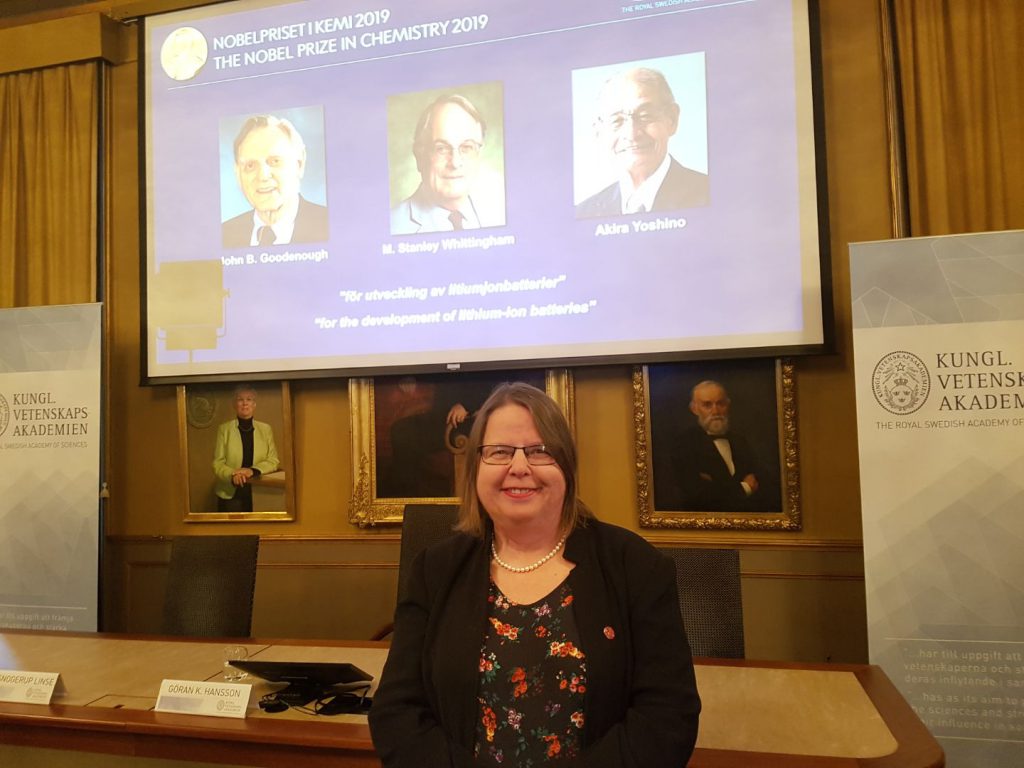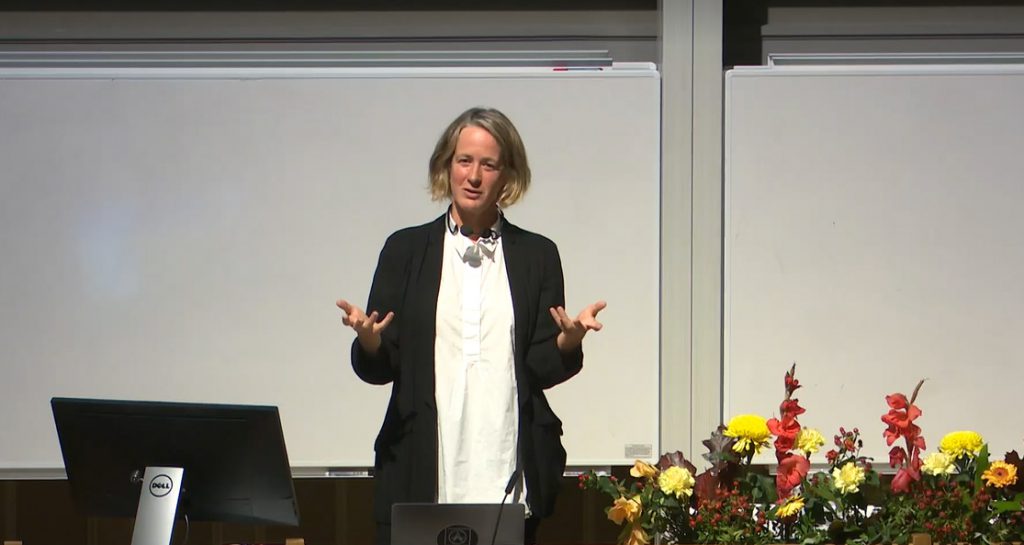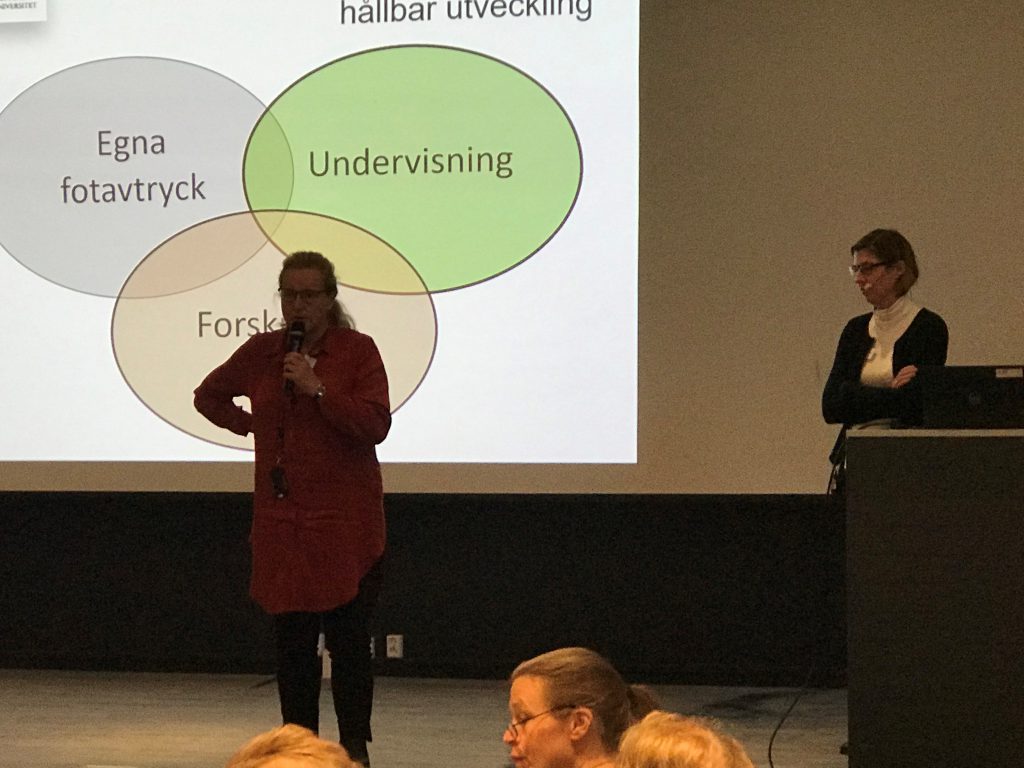With autumn colours at their peak, it was time this week for the semester’s deans away day. We are half way through the week when the year’s Nobel prizes are revealed, a time of year when basic science receives a lot of well-deserved attention. It was particularly pleasing that one of the laureates sharing the physics prize, Michel Mayor, holds an honorary doctorate from Uppsala University. Congratulations! My own background being in chemistry, I need hardly make a secret of the fact that the chemistry prize has special meaning for me. Today we learned that it is being awarded to battery researchers John B. Goodenough, Stanley Whittingham and Akir Yoshino, a very welcome choice. Uppsala University has extensive and very successful battery research, and Professor Kristina Edström also heads the major European initiative Battery 2030. She has been very busy with interviews today as the Nobel Committee’s expert.

For today’s deans’ meeting, we had commissioned a new report from Adviser to the Vice-Chancellor on Sustainable Development Anna Rutgersson and Environmental Director Karolina Kjellberg to clarify where we stand in our internal environmental and climate efforts. The report shows that we are not currently doing enough to ensure that our activities are in line with established Swedish and international targets.
We started the session by watching Professor Keri Facer lecture by videolink on how universities can work for the climate in a future-oriented way. Last week she gave her Zennström Lecture “Learning to live with a lively planet: the renewal of the university’s mission in the era of climate change”. Keri Facer is Professor of Educational and Social Futures at the University of Bristol, but also currently holds the Zennström Visiting Professorship in Climate Change Leadership, a subject that is growing rapidly at the University.

We had a lively and very good discussion on how to work effectively for sustainable development at Uppsala University. I now feel that I, as Vice-Chancellor, have a strong mandate to revise our environmental plan to a more ambitious level with clearer targets. I will decide on terms of reference for this project in the near future at an upcoming decision-making session.
Climate and sustainability issues have risen high on the agenda in Sweden and globally, and rightly so. The scientific community has long agreed that the situation is serious and called upon the world to act. We all have a responsibility to contribute to achieving the goals set in the UN’s 2030 Agenda and the Paris Agreement. For those of us in the university management, it is important that what we do leads forwards, is a genuine part of our governance documents and plans, and is more than just fine words.
When asked what the University is doing for the climate, I always emphasise that the very most important contribution to a sustainable world is our research and education, which give society knowledge to solve the challenges. This is our strength. As a full-scale research university, Uppsala University is well equipped to contribute deep specialist knowledge across a wide range of fields. There are great opportunities to combine perspectives in new ways and important work is already being done to initiate interdisciplinary projects in both research and education. However, we must also of course set an example in the University’s own activities. We must be ambitious about practising what we preach and strive to pave the way for sustainable choices.
At this time, when people are waking up to the threats to the climate, initiatives, calls for action and petitions abound. As Vice-Chancellor, I genuinely welcome the commitment of the University’s students, staff and partners. Having said that, I would like to recall the importance of keeping calm and steering a steady course for the climate on a scientific basis. As one of my advisers to the Vice-Chancellor, Cecilia Wejryd, once expressed this approach so wisely in another context: we need both the energy of activists and the coolness of the academic community. When those around us are running, it is important that academia dares to persist in moving methodically with the facts before us. We must act quickly, but on a scientific basis, not on the basis of ‘placard politics’. Pressing steadily ahead and making well-considered choices may not be the most spectacular way to show commitment, but I am convinced it leads to results.
We already participate actively in the Uppsala Climate Protocol and have entered into an agreement with Akademiska Hus on climate measures. More landlords may follow. But we also need to draw up well-prepared proposals on measures that make it easier for our faculties, departments and centres to make good climate choices. And make sure to include them in the University’s operational plans and environmental plan. If there are researchers who have studied the efficacy of different measures in large organisations, we must talk with them. What we do must be based on knowledge and dialogue.
Alongside these efforts, we must become better at picking up ideas from inside the University, not least from our students. Next week we will be discussing the issue of a Green Office in the Management Council, for this very purpose. Many departments have made significant progress and taken important steps based on their own conditions. I am sure they can inspire others. It is important to learn from one another.

It is also important to remember to maintain an open dialogue on these matters. Here, the universities have an important part to play. Some proposals that came up during the meeting were “Ask Uppsala” or “Environmental Help” to respond to people’s questions about the climate. In a society where questions cannot be asked, points of view cannot meet and conflicts between different goals cannot be discussed in depth, silence spreads. And if that happens, we are all losers. We say that it must be easy to do the right thing, but it is not always easy to know the right thing to do. Here we must take responsibility and be active in the dialogue.
